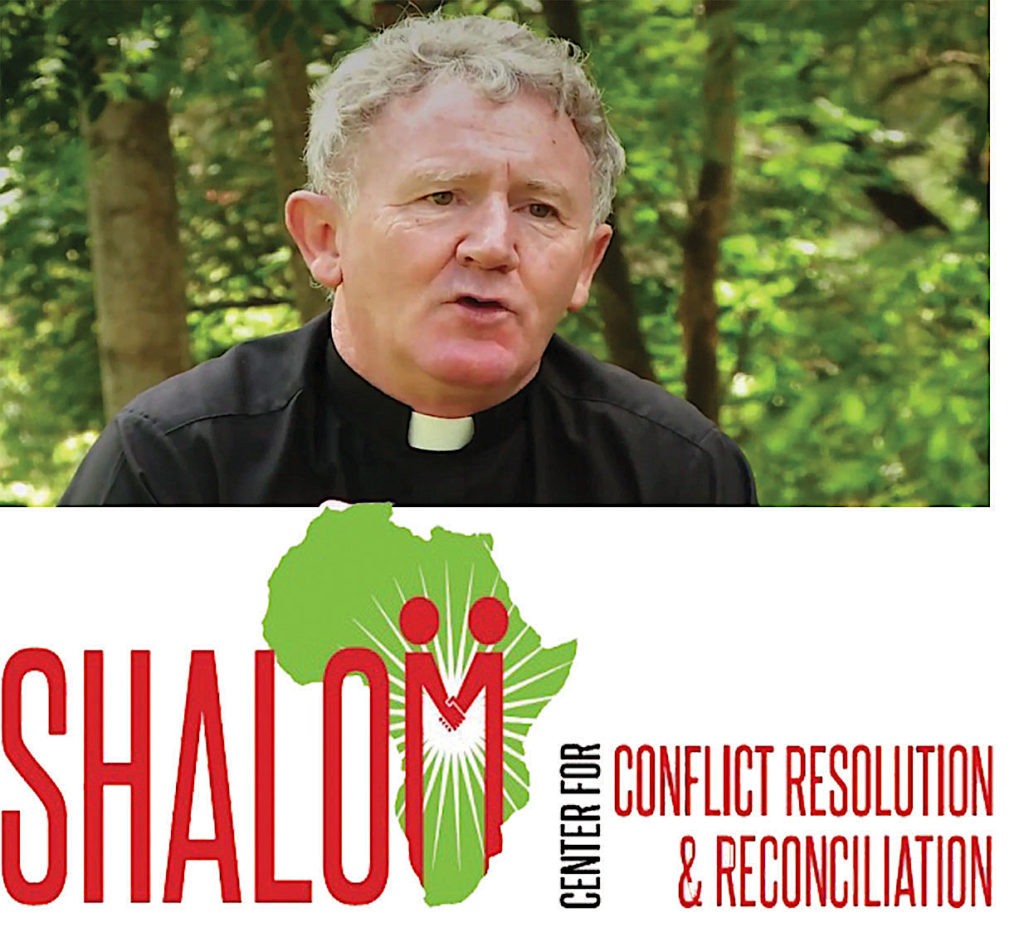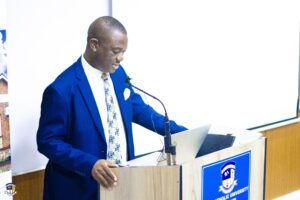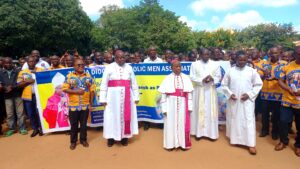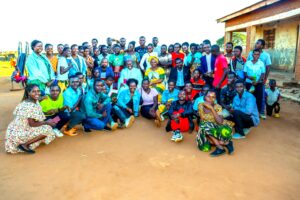KENYA: Why Grassroots Reconciliation Center Have Authority to Present Matters of Conflict to the UN Forum

Fr Patrick Devine, SMA
Sr. Jecinter Antoinette Okoth, FSSA
Settling strife to bring forth peace among individuals and ethnic communities is a major concern in society today according to the founder of Shalom Center for Conflict Resolution and Reconciliation (SCCRR) who has shared with AMECEA Online weeks after the United Nations (UN) Department of Global Communications’ accreditation the organization.
“Shalom Center for Conflict Resolution and Reconciliation will be able to voice concerns of the people in Eastern Africa around issues of conflict, under-development and the need to transform religious ideological extremism after the UN department of Global Communications approved our center and accredited us,” the founder and international chairman of SCCRR Fr. Patrick Devine said in an interview Thursday, October 29.
He adds, “This recognition of Shalom by the UN is an opportunity for us to take issues to the UN level for decision making and to work with other associated organizations in furthering the goals and objectives of creating a better and more peaceful world together.”
Underlining how SCCRR fulfills its mission to work for a society free of physical violence and unjust social structure in Africa while building peaceful and reconciled communities, the Irish clergy who has lectured in Tangaza University in Kenya for 12 years emphasized on high level of training and engagement of concerned parties in conflict resolution.
“The secret of Shalom success has been the ability to go among the ethnic communities engaged in conflict, identify the key influential opinion shapers in the environment and train them,” Fr. Devine a member of the Society of African Mission (SMA) disclosed during the Thursday interview.
He elaborated further, “We go to the grassroots and identify these key influential opinion shapers who may be the chiefs, the elders, women leaders, youths or religious leaders who after training them they go to implement what they have leant and to teach the people about conflict resolution.”
“We train them for about two years, so that they acquire the analytical skills to understand what causes conflict with their neighbors. This could be environmental, culture related issues, proliferation of small arms or even political or economy issues. Eventually we equip them with peace building techniques,” he underscores.
Fr. Devine, a missionary cleric and a native of Frenchpark received the 2013 International Caring Award at the 25th annual Caring Awards in Washington DC for playing a central role in creating enduring peace settlements in Kenya.
Sharing about the areas which need transformation when training on peace building techniques, the priest said, “There are four critical areas we look into; the personal level which has to deal with the spiritual, the psychological and emotional, we then focus on relational level which deals with behavior, stereotyping and communication.”
He adds, “we then pay attention to the institution on the necessity to meet the basic human needs and to actualize the potentials that can be made better; and finally, we look into issues of culture on how culture propagate conflict and situations where culture is legitimizing violence.”
Amidst challenges which can be environmental in nature or language barrier that cause difficulty to work in ethnic communities involved in conflict, SCCRR carried out 106 interventions in 11 major conflict zones in Kenya and realized results in solidifying and stabilizing peace.
Among the partners of SCCRR which include the Inter-governmental Authority on Development (IGAD), international and regional colleges and universities as well as Religious associations, regional organizations, ethnic representatives and relevant governments among others, the Center is currently in collaboration with Association of Member Episcopal Conferences in Eastern Africa (AMECEA) to structure a program to help all conferences within the AMECEA region to deal with issues of religious ideological extremist and so counter terrorism.
SCCRR which is planning to diversify to other eastern Africa countries was founded in Kenya in 2009 and currently has approximately 20 staff with a leadership comprising of Fr Oliver Noonan the Country Director, Mr. Godfrey Okoth the Program Director and Prof. Wanakayi Omoka the Director of Research.


